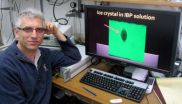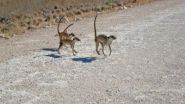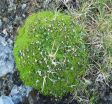(Press-News.org) Scientists at Queen Mary, University of London have identified a gene present in some melanoma which appears to make the tumour cells more resistant to treatment, according to research published today in the Journal of Experimental Medicine.
The scientists discovered that the gene TP63 is unexpectedly expressed in some melanoma and correlates significantly with a worse prognosis. It is hoped this new understanding of what makes some melanoma cells so difficult to kill will help inform the development of new therapies.
Melanoma is a form of skin cancer which usually appears on the body as a new or changing mole. Almost 13,000 people in the UK are diagnosed with melanoma each year. While it is less common than other forms of skin cancer – around five per cent of skin cancers are melanoma – it results in around 75 per cent of skin cancer related deaths (more than 2000 deaths a year in the UK).
The number of cases of melanoma is rising faster than almost any other cancer and one of the main risk factors is ultraviolet light, which comes from the sun or sunbeds. While early-stage melanomas can often be removed by surgery, more advanced melanomas are much harder to treat.
Dr Daniele Bergamaschi, a senior lecturer in cutaneous research at Queen Mary said: "For most patients where the melanoma has spread beyond the skin, there are few effective treatments and overall survival rates for this disease have not changed much over the past 30 years.
"To develop better treatments we need to understand the basic biology underpinning why these cells are so resistant to being killed."
The researchers analysed 156 melanoma tissue samples from 129 individuals for expression of the protein p63 – the protein encoded by the gene TP63. They found that p63 was expressed in more than 50 per cent of the samples (58% of primary metastatic samples, 53% of recurrent samples and 66% of metastatic samples) and correlated significantly with death from melanoma.
Dr Bergamaschi said: "We did not expect to find the TP63 gene expressed in melanoma. It is not usually found in the melanocytes (skin pigment cells), which are the cells from which melanomas develop. However, it appears in some cases this gene is turned on as the tumour forms, and when it does it is linked to a worse prognosis."
The researchers suggest that the TP63 gene, and the subsequent production of the protein p63 in some melanoma, is inhibiting the apoptotic function of the protein p53. One of the main activities mediated by p53 is apoptosis – the process of programmed cell death and one of the main mechanisms by which cancer cells die.
Dr Bergamaschi said: "The apoptotic pathway is often not working in melanoma. However this is not explained by mutations in the TP53 gene, which encodes for the p53 protein, as evidence suggests this is mutated in less than 10 per cent of melanoma.
"This work suggests that in a significant number of cases it is actually the protein p63 which is inhibiting p53's apoptotic function, making some tumours more resistant to treatment. We therefore suggest that p63 should be considered when designing new treatments for melanoma which are focused on re-activating the apoptotic pathway in order to make the cancer cells easier to kill."
### END
Gene linked to worse outcomes for melanoma
2013-02-19
ELSE PRESS RELEASES FROM THIS DATE:
Not just cars, but living organisms need antifreeze to survive
2013-02-19
Jerusalem, February 17, 2013 – If you thought antifreeze was only something that was necessary to keep your car from freezing up in the winter, think again. Plants and animals living in cold climates have natural antifreeze proteins (AFPs) which prevent ice growth and crystallization of organic fluid matter. Without such antifreeze, living matter would suffer from frost damage and even death.
Production of such antifreeze proteins is one of the major evolutionary routes taken by a variety of organisms, including fish, insects, bacteria, plants and fungi. Understanding ...
Blood is thicker than water -- and blood plasma is, too
2013-02-19
The results are significant because they can help to improve our understanding of medical conditions, such as thrombosis, aneurysms and arteriosclerosis. The research team is publishing its results in Physical Review Letters and the American Physical Society has highlighted the work on its Physics website, placing it on the Focus List of important physics news.
Blood flows differently than water. Anyone who has ever cut themselves knows that blood flows viscously and rather erratically. The similarity between blood and ketchup is something not only filmmakers are aware ...
Researchers in Manchester find genetic key to preventing spine tumors
2013-02-19
Genetic medicine experts from Manchester Biomedical Research Centre at Saint Mary's Hospital and The University of Manchester have identified a new gene responsible for causing an inherited form of tumour, known as spinal meningioma.
Professor Richard Marias, Director of the Paterson Institute
Meningiomas are the commonest form of tumour affecting the brain and spine. Usually meningiomas can be removed by surgery and do not recur. Occasionally people can develop more than one meningioma or many members of the same family can be affected.
A team led by Dr Miriam Smith, ...
Subordinate animals as guinea pigs
2013-02-19
In their environment, wild animals are exposed to countless threats, be they predators, diseases or natural obstacles to get over, such as gorges or rivers. In the course of evolution, they have developed specific behavioural responses to allow them to deal with these risks. In recent times, numerous man-made threats have been added to the naturally-existing ones, such as dangerous roads to cross. On the evolutionary time scale, it is excluded that the animals have evolved a whole new repertoire of adaptive responses to these risks. Simon Townsend is a behavioural biologist ...
Reduced sea ice disturbs balance of greenhouse gases
2013-02-19
The widespread reduction in Arctic sea ice is causing significant changes to the balance of greenhouse gases in the atmosphere. This is shown in a new study conducted by researchers from Lund University in Sweden, among others.
According to the study, the melting of sea ice in the Arctic has a tangible impact on the balance of greenhouse gases in this region, both in terms of uptake and release. The researchers have studied the greenhouse gases carbon dioxide and methane both in the tundra and in the Arctic Ocean.
"Changes in the balance of greenhouse gases can have ...
The criteria for weight-loss surgery need to be changed
2013-02-19
Weight-loss surgery is currently only offered to patients who exceed a certain BMI. However, surgical intervention could improve the health of many more people. This is shown by the Swedish Obese Subjects study carried out at the Sahlgrenska Academy, University of Gothenburg, Sweden, involving 104 patients who were operated on despite their BMI being "too low". As a result, the risk of developing diabetes was reduced by 67 percent.
In order to meet the current selection criteria for weight-loss surgery, Swedish patients must have a body mass index (BMI) above 40 for ...
Cushion plants help other plants survive
2013-02-19
Alpine cushion plants help other plants in harsh mountain environments to survive. This is shown by new research involving researchers from the University of Gothenburg, the results of which are now being publishing in the highly respected journal Ecology Letters.
Cushion plants are a type of plant found in areas such as Arctic environments, and are characterised by their distinctive, round, cushion-like shape.
A new study highlights the strong interaction between cushion plants and other plants in the most severe of mountain environments.
"Cushion plants create additional ...
New projections of 'uneven' global sea-level rise
2013-02-19
Sophisticated computer modelling has shown how sea-level rise over the coming century could affect some regions far more than others. The model shows that parts of the Pacific will see the highest rates of rise while some polar regions will actually experience falls in relative sea levels due to the ways sea, land and ice interact globally.
Reporting in the journal Geophysical Research Letters researchers have looked ahead to the year 2100 to show how ice loss will continue to add to rising sea levels. Scientists have known for some time that sea level rise around the ...
New insight into dogs fear responses to noise
2013-02-19
A study has gained new insight into domestic dogs' fear responses to noises. The behavioural response by dogs to noises can be extreme in nature, distressing for owners and a welfare issue for dogs.
The research by academics from the School of Veterinary Sciences at the University of Bristol, and funded by the RSPCA, is published in Applied Animal Behaviour Science. The study provides an important insight into dogs' fear of noises, and could improve our understanding of behavioural signs of fear or anxiety.
In the study two approaches were taken to investigate the ...
Molecules generated that can halt metastasis of colon cancer
2013-02-19
A Basque research consortium has managed to halt the progress of colon cancer and its metastasis in the liver in an experimental model with mice. This advance, that may open a new path for the future treatment of such pathologies, has been achieved by creating molecules which interfere with the adhesion of tumour cells to other cells of the organism. In this way, the molecules halt both the growth of the tumour and the dissemination of the tumour to and its proliferation in other organs.
The research, published in the prestigious North American Journal of Medicinal Chemistry, ...



